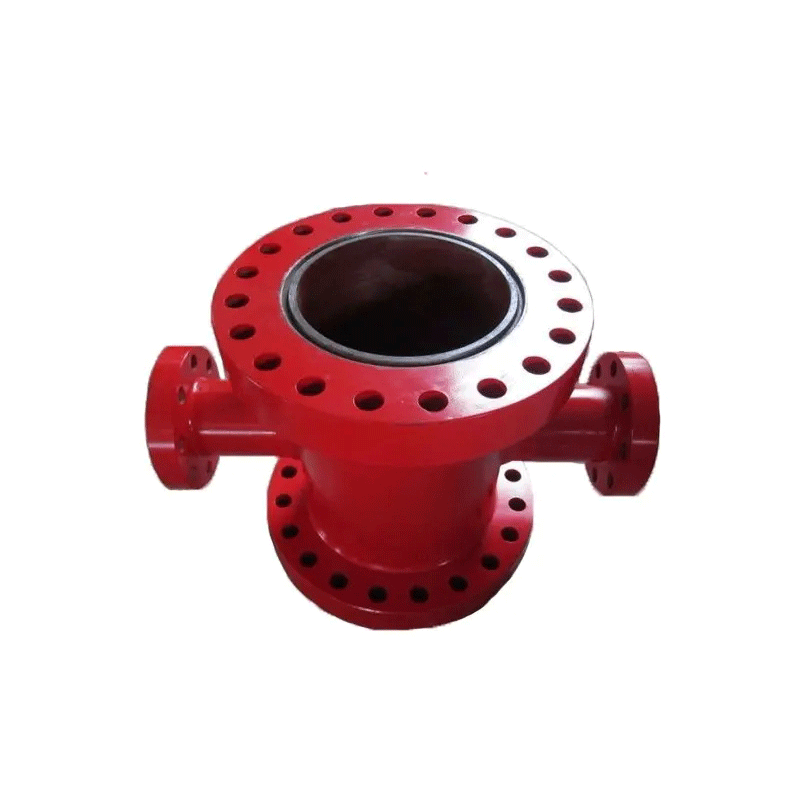Flanges play a crucial role in drilling equipment, serving as key connectors that ensure secure, leak-free joints between pipes, valves, pumps, and other equipment. In oil, gas, and deep-hole drilling applications, flanges are essential for maintaining the integrity and performance of the system. As an integral part of drilling equipment, the choice and application of flanges directly affect the efficiency and safety of the entire operation. Understanding the types, functions, and selection criteria of flanges can help optimize drilling operations for better performance and safety.
1. What is a Flange?
A flange is a mechanical component used to connect pipes, valves, pumps, or other equipment. It is typically made of metal (such as stainless steel, carbon steel, or alloy steel) and has a flat, round shape with multiple bolt holes along its edge. The primary function of a flange is to securely connect two sections of pipe or equipment with bolts and provide a tight seal to prevent leakage of fluids, gases, or other materials.
In drilling equipment, flanges are commonly used to connect drilling pipes, mud pipes, oil and gas pipelines, and other critical components, ensuring the stability and efficiency of the system.

2. Key Roles of Flanges in Drilling Equipment
Flanges play an indispensable role in drilling operations, and their importance is highlighted in the following aspects:
- Ensuring Sealing Integrity: During drilling operations, pipes must endure high pressure and the flow of complex fluids. Flanges are designed to create a tight seal that prevents leaks at pipe joints. This is critical for maintaining operational safety and preventing environmental contamination.
- Connecting and Supporting Components: Flanges are essential for connecting various parts of drilling equipment. They help to securely fasten pipes, valves, and other devices, ensuring the smooth flow of liquids and gases. In high-pressure environments, the strength and stability of the flange are crucial.
- High Temperature and Corrosion Resistance: Drilling operations often take place in extreme conditions, including high temperatures, high pressures, and exposure to corrosive fluids. The material selection for flanges directly affects their durability and lifespan. High-quality flanges are designed to withstand these harsh conditions, ensuring continuous and stable operation.
- Ease of Maintenance and Replacement: One of the advantages of flanges is that they are relatively easy to install, remove, and replace. In the event of a malfunction, replacing a damaged flange can be done quickly, which helps reduce downtime and maintenance costs.
3. Types of Flanges and Selection Guide
In drilling equipment, the most common types of flanges include:
- Weld Neck Flanges: These flanges are designed to be welded directly to pipes. They offer strong mechanical strength and are ideal for high-pressure applications, making them suitable for deep drilling operations.
- Slip-On Flanges: These flanges are slid onto the pipe and then welded in place. They are cost-effective and easy to install but are generally used for lower pressure and temperature applications.
- Blind Flanges: Blind flanges are used to seal the end of a pipeline or pressure vessel. They are ideal for stopping the flow of liquids or gases in a pipe when not in use.
- Threaded Flanges: These flanges are used where welding is not an option. They are ideal for applications where frequent disassembly and reassembly are required.
4. Why the Right Flange Matters for Your Drilling Operations
Choosing the right flange is essential not only for ensuring the efficiency of drilling operations but also for maintaining safety standards. A high-quality, durable flange prevents leaks, minimizes downtime, and ensures that drilling fluids and gases flow smoothly through the system. Furthermore, using the right type of flange for your specific application ensures optimal performance and reduces the risk of system failures, which can lead to costly repairs or delays.
5. How Our Flanges Can Benefit Your Drilling Operations
At [Your Company Name], we specialize in providing high-quality, durable flanges designed to meet the rigorous demands of drilling operations. Our flanges are engineered for high pressure, temperature, and corrosion resistance, ensuring reliable performance in even the harshest environments. Whether you are working on offshore, onshore, or deepwater drilling projects, our flanges will help ensure the success and safety of your operations.